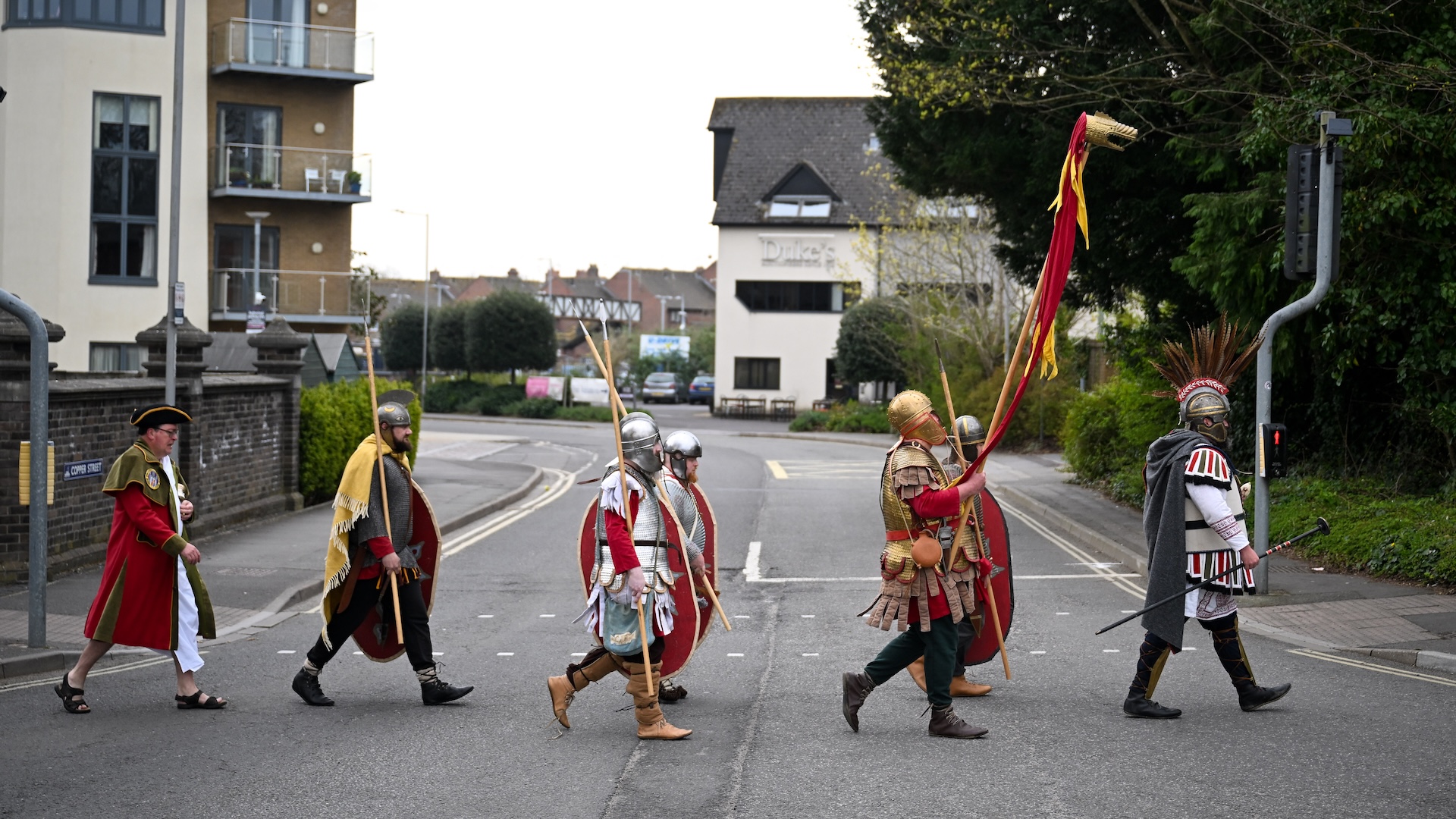Roman Britain quiz: What do you know about the Empire's conquest of the British Isles?
The Romans took over a large chunk of Great Britain 2,000 years ago. The conquest was anything but smooth sailing.

Julius Caesar decided to invade Britain in 55 B.C. as a strategic military move, since he thought the Britons were conspiring with the Gauls against him. But he hit immediate resistance when landing in what is now England and failed to conquer any territory.
For the next century, Roman emperors tried unsuccessfully to make inroads into Britain. But in A.D. 43, Emperor Claudius launched a series of campaigns that resulted in the Romans establishing a capital at Camulodunum, now called Colchester.
The Romans suppressed a series of uprisings led by Celtic chiefs and, under Emperor Hadrian, built a defensible wall across the new northern frontier of the Roman Empire in A.D. 122. Even though Caesar got tossed out of England, the country is full of evidence the Romans ruled the province of Britannia for nearly four centuries.
Think you're an encyclopedia of Britannia? Start the quiz below to find out if you're a font of Roman knowledge or if you'll end up in ruins.
Remember to log in to put your name on the leaderboard; hints are available if you click the yellow button!
More science quizzes
—Roman emperor quiz: Test your knowledge on the rulers of the ancient empire
—Alexander the Great quiz: How well do you know the famous king and conqueror from the ancient world?
Get the world’s most fascinating discoveries delivered straight to your inbox.
—Stonehenge quiz: What do you know about the ancient monument?

Kristina Killgrove is a staff writer at Live Science with a focus on archaeology and paleoanthropology news. Her articles have also appeared in venues such as Forbes, Smithsonian, and Mental Floss. Kristina holds a Ph.D. in biological anthropology and an M.A. in classical archaeology from the University of North Carolina, as well as a B.A. in Latin from the University of Virginia, and she was formerly a university professor and researcher. She has received awards from the Society for American Archaeology and the American Anthropological Association for her science writing.
You must confirm your public display name before commenting
Please logout and then login again, you will then be prompted to enter your display name.
 Live Science Plus
Live Science Plus





